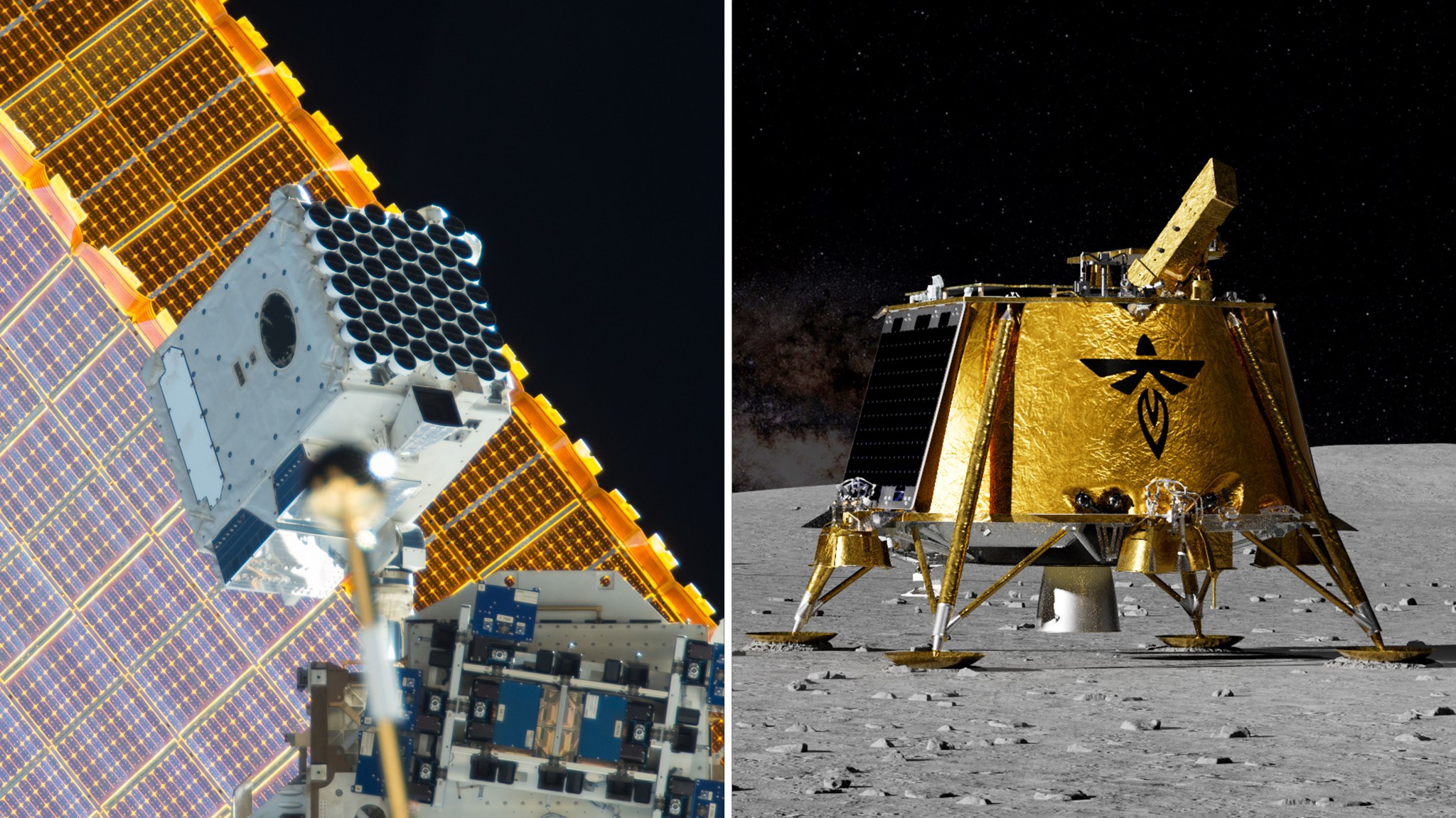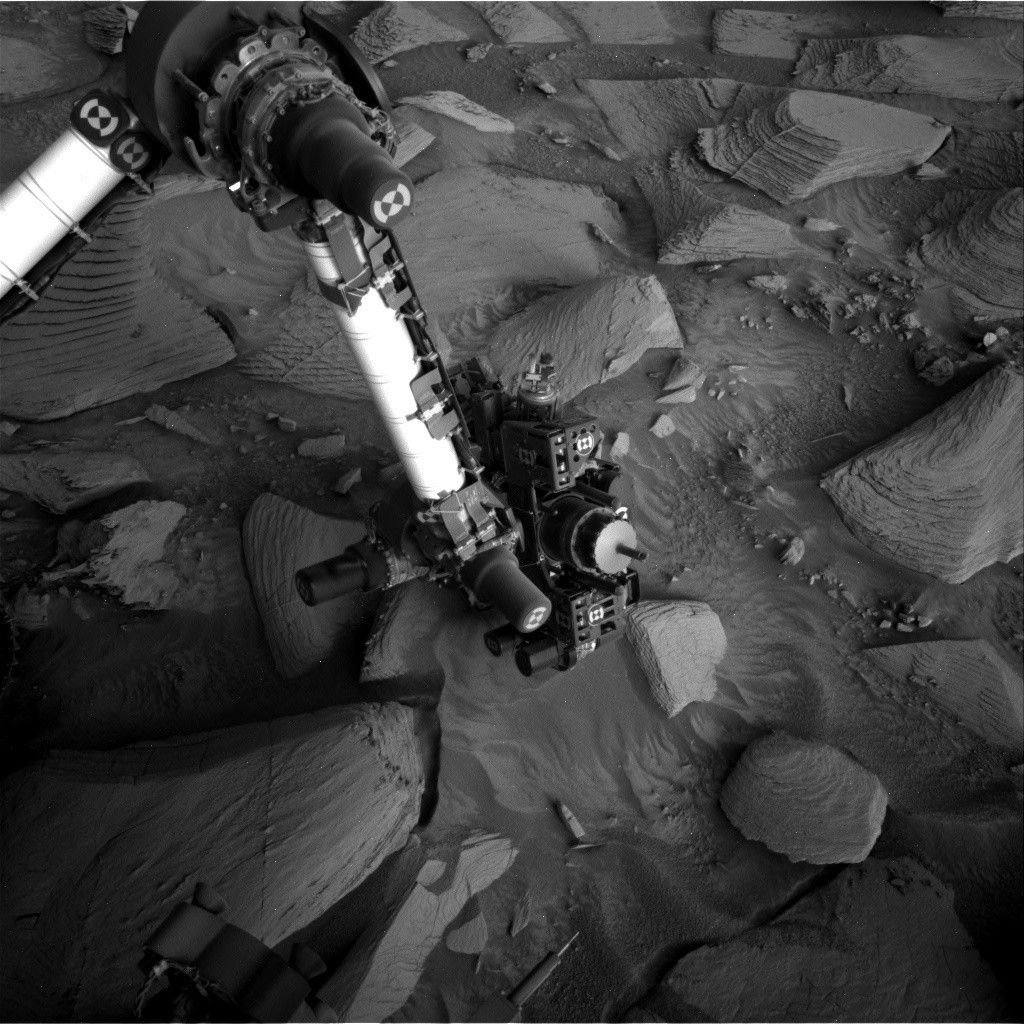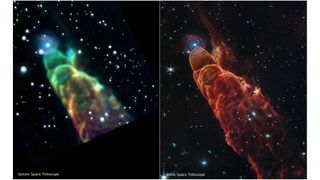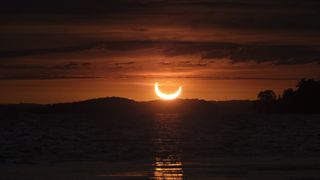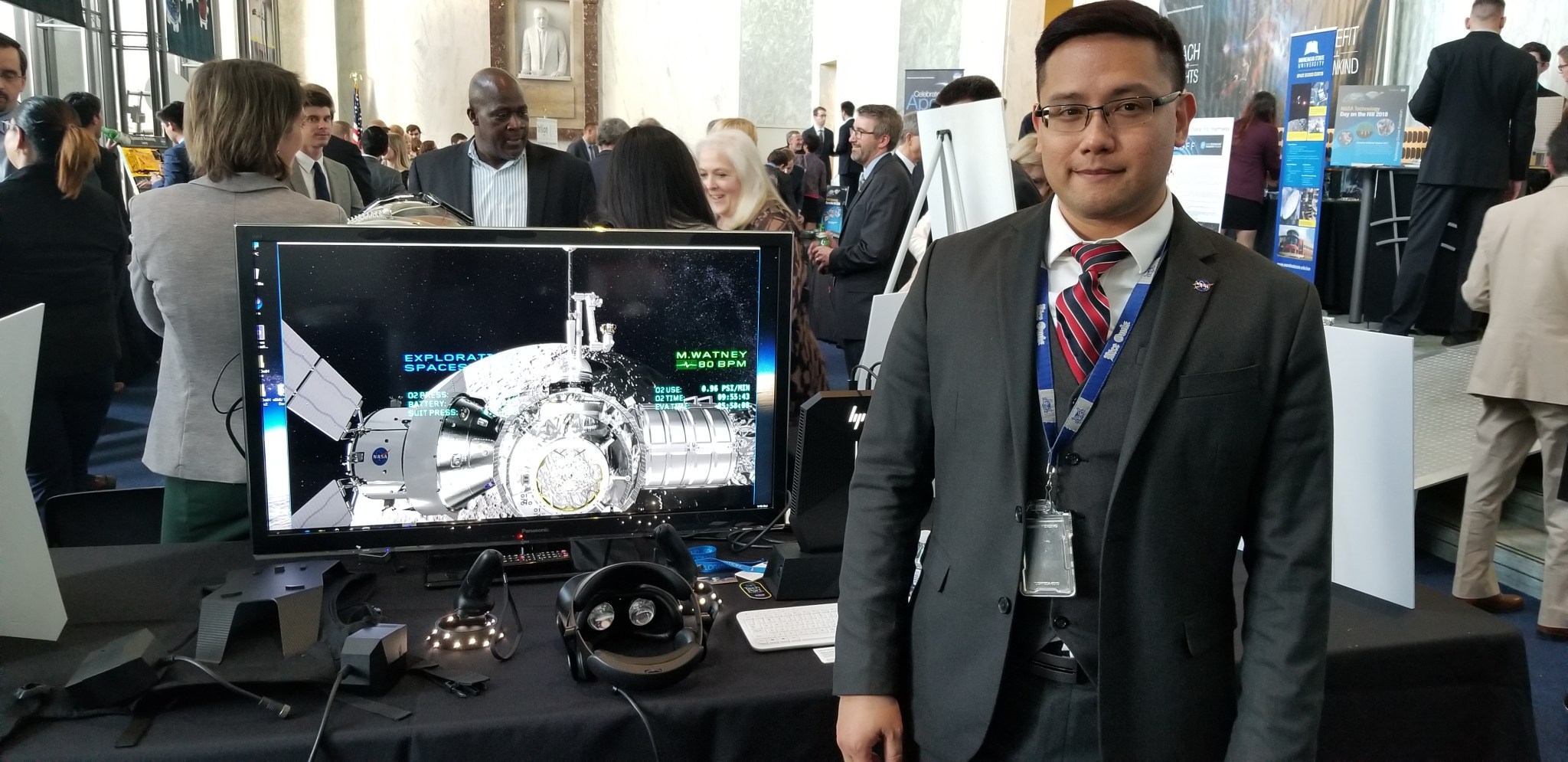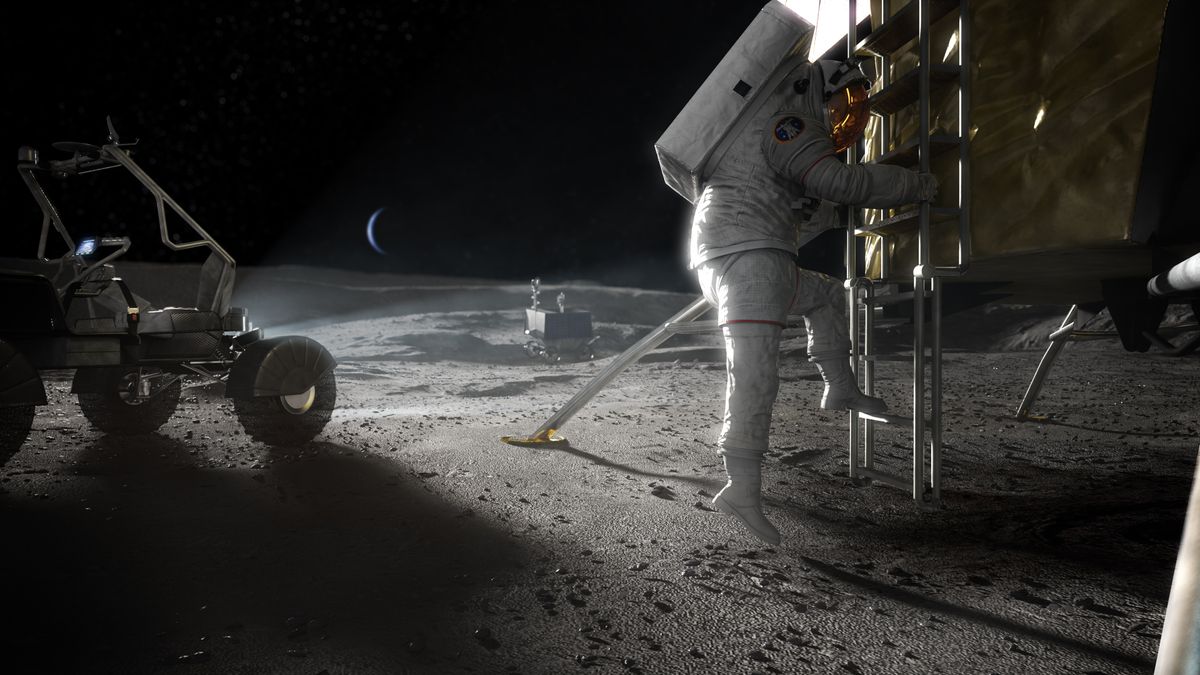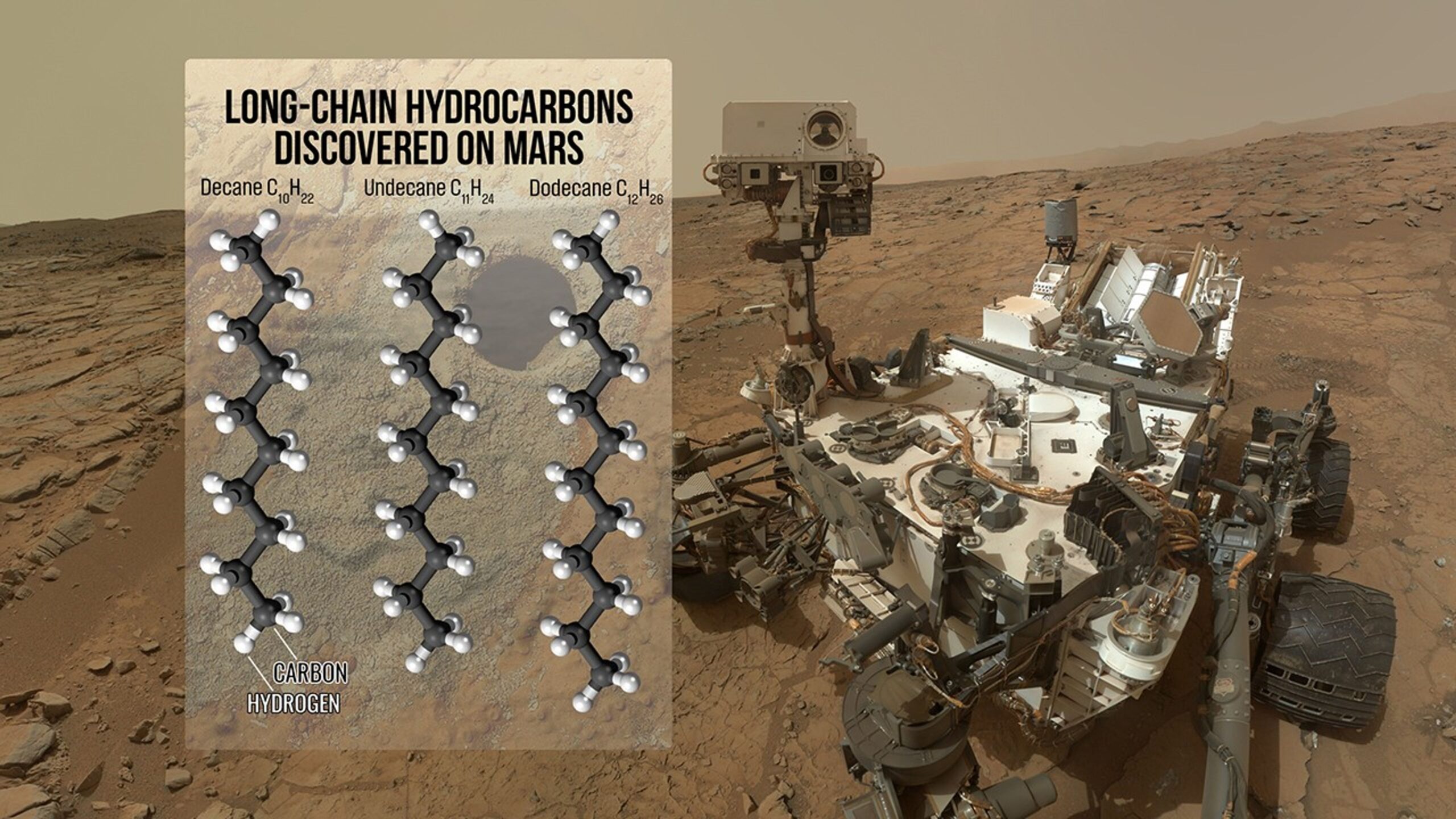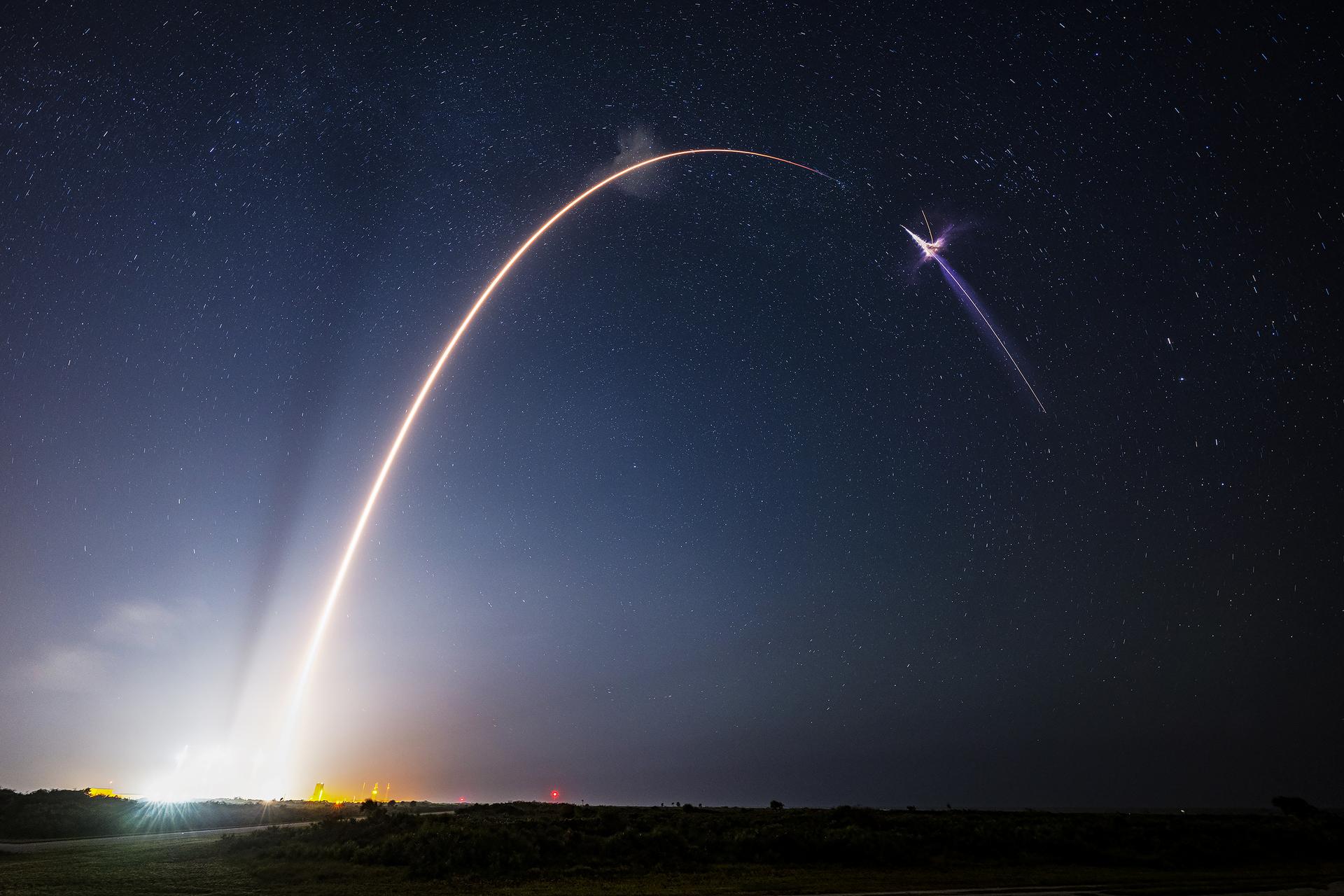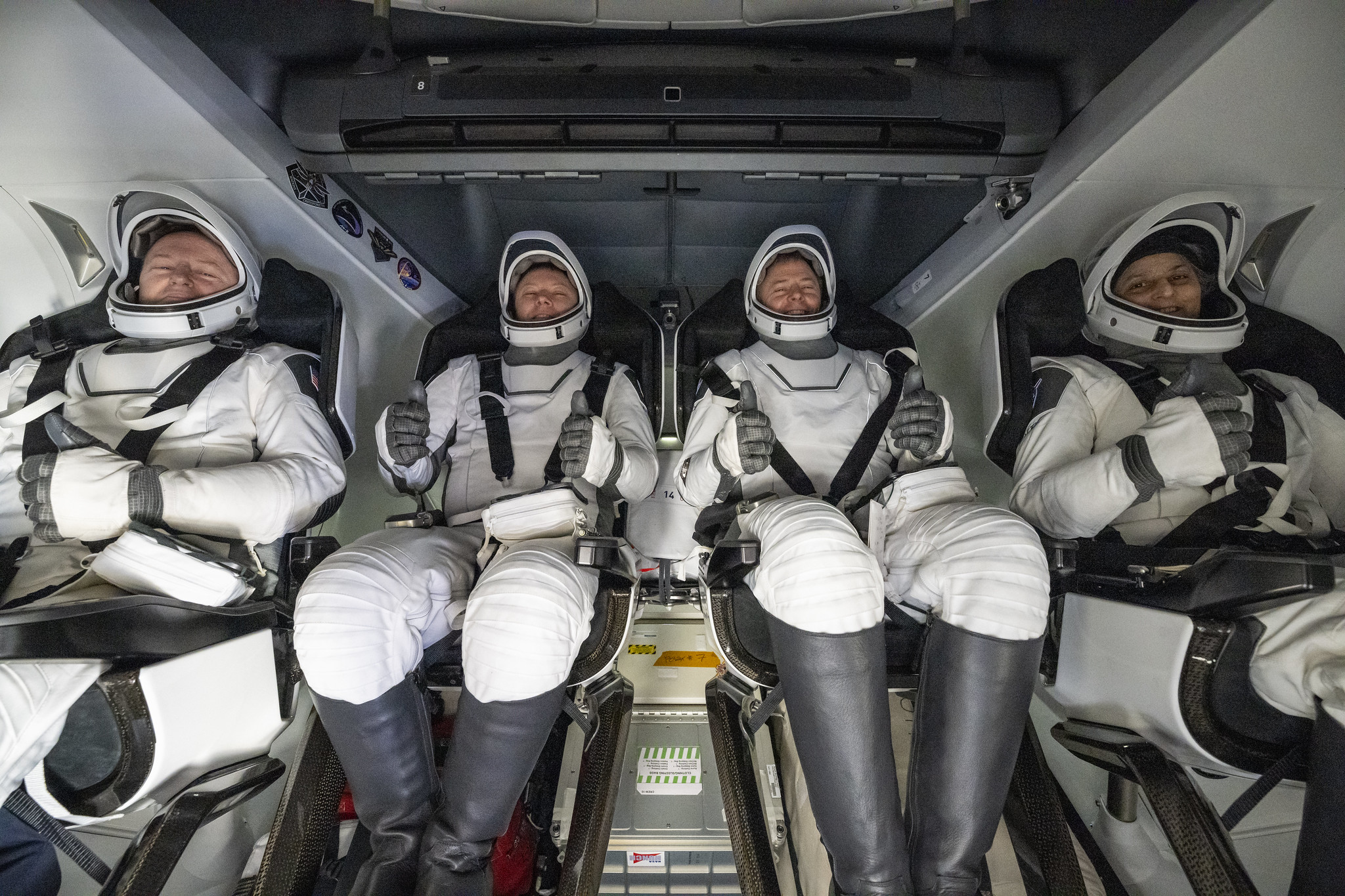En esta ilustración se muestra al telescopio NICER (a la izquierda) montado en la Estación Espacial Internacional y al telescopio LEXI (a la derecha) sujeto a la parte superior del módulo Blue Ghost de Firefly Aerospace. NASA/Firefly Aerospace La Estación Espacial Internacional sustenta una amplia gama de actividades científicas, desde la observación de nuestro universo hasta el logro de avances en investigaciones médicas, y es un campo de pruebas activo en la tecnología para futuras misiones de exploración en la Luna y más allá. La misión Blue Ghost 1 de Firefly…
Read MoreAuthor: NeRD
Sols 4488-4490: Progress Through the Ankle-Breaking Terrain (West of Texoli Butte, Climbing Southward)
Curiosity Navigation Curiosity Home Mission Overview Where is Curiosity? Mission Updates Science Overview Instruments Highlights Exploration Goals News and Features Multimedia Curiosity Raw Images Images Videos Audio Mosaics More Resources Mars Missions Mars Sample Return Mars Perseverance Rover Mars Curiosity Rover MAVEN Mars Reconnaissance Orbiter Mars Odyssey More Mars Missions Mars Home 3 min read Sols 4488-4490: Progress Through the Ankle-Breaking Terrain (West of Texoli Butte, Climbing Southward) NASA’s Mars rover Curiosity captured this image showing its robotic arm in action; the view also illustrates bedding on a light-toned bedrock…
Read More‘Cosmic tornado’ swirls in breathtaking new James Webb Space Telescope image
A cosmic coincidence has led to one of the most amazing images ever captured by NASA’s James Webb Space Telescope (JWST). The dramatic outflow from a newborn star, known as Herbig-Haro 49/50 (HH 49/50), just so happened to align perfectly with a distant spiral galaxy, creating this mesmerizing celestial scene. Herbig-Haro objects are glowing clouds of gas and dust shaped by newborn stars or protostars. They form when jets of charged particles, ejected from young stars at immense speeds, slam into surrounding material, creating brilliant, ever-changing patterns in the sky.…
Read MoreRare ‘solar horns’ will appear during partial solar eclipse on March 29 — Here are 6 of the best places in the US and Canada to see the unusual phenomenon
There’s something special about the partial solar eclipse on March 29, 2025. For North Americans in the right place at the right time — and who get clear skies — there’s a chance to see the unique spectacle of “solar horns,” a phenomenon where the cusps of an eclipsed crescent sun appear as two distinct points above the horizon during sunrise. For observers in the northeastern U.S. and eastern Canada aiming to witness this rare event, selecting the optimal location is crucial. Selecting a location for ‘solar horns’ “Solar horns”…
Read MoreEngineering Reality: Lee Bingham Leads Lunar Surface Simulation Support for Artemis Campaign
If you design a new tool for use on Earth, it is easy to test and practice using that tool in its intended environment. But what if that tool is destined for lunar orbit or will be used by astronauts on the surface of the Moon? NASA’s Simulation and Graphics Branch can help with that. Based at Johnson Space Center in Houston, the branch’s high-fidelity, real-time graphical simulations support in-depth engineering analyses and crew training, ensuring the safety, efficiency, and success of complex space endeavors before execution. The team manages…
Read MoreNASA says removal of ‘first woman, person of color’ language from Artemis websites ‘does not indicate’ moon mission crew change
NASA websites no longer state that the Artemis 3 lunar mission will aim to land the first person of color and the first woman on the moon — a longstanding goal of the Artemis program that the agency has consistently called upon when discussing lunar plans. The change appeared this weekend as NASA continues to cancel programs dedicated to diversity, equity, inclusion and accessibility (DEIA) as well as purge its websites of any language related to these efforts. These decisions are guided by the Trump administration’s push to end programs…
Read MoreNASA’s Curiosity Rover Detects Largest Organic Molecules Found on Mars
Researchers analyzing pulverized rock onboard NASA’s Curiosity rover have found the largest organic compounds on the Red Planet to date. The finding, published Monday in the Proceedings of the National Academy of Sciences, suggests prebiotic chemistry may have advanced further on Mars than previously observed. Scientists probed an existing rock sample inside Curiosity’s Sample Analysis at Mars (SAM) mini-lab and found the molecules decane, undecane, and dodecane. These compounds, which are made up of 10, 11, and 12 carbons, respectively, are thought to be the fragments of fatty acids that…
Read MoreLike Sands Through the Hourglass…
Shimmering ejections emitted by two actively forming stars make up Lynds 483 (L483). High-resolution near-infrared light captured by NASA’s James Webb Space Telescope shows incredible new detail and structure within these lobes, including asymmetrical lines that appear to run into one another. L483 is 650 light-years away in the constellation Serpens.
Read MoreNASA Invites Media to SpaceX’s 32nd Resupply Launch to Space Station
The SpaceX Falcon 9 rocket carrying the Dragon spacecraft lifts off from Launch Complex 39A at NASA’s Kennedy Space Center in Florida on Nov. 4, 2024, on the company’s 31st commercial resupply services mission for the agency to the International Space Station. Credit: SpaceX Media accreditation is open for the next launch to deliver NASA science investigations, supplies, and equipment to the International Space Station. NASA and SpaceX are targeting no earlier than Monday, April 21, to launch the SpaceX Dragon spacecraft on the company’s Falcon 9 rocket from Launch…
Read MoreNASA’s SpaceX Crew-9 Astronauts to Discuss Science Mission
NASA astronaut Butch Wilmore, left, Roscosmos cosmonaut Aleksandr Gorbunov, second from left, and NASA astronauts Nick Hague, second from right, and Suni Williams, right, are seen inside a SpaceX Dragon spacecraft shortly after splashing down off the coast of Florida, Tuesday, March 18, 2025. NASA’s SpaceX Crew-9 mission returned from a long-duration science expedition aboard the International Space Station. Photo Credit: (Credit: NASA). NASA/Keegan Barber After completing a long-duration stay aboard the International Space Station, NASA’s SpaceX Crew-9 astronauts will discuss their science mission during a postflight news conference at…
Read More